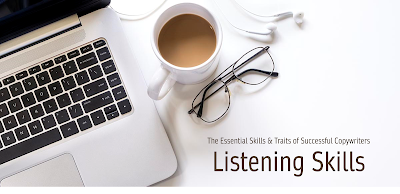One of the primary skills that separates the experienced copywriters from the newbies is the ability to separate features from benefits. While features describe the characteristics of a product or service, it is the benefits that truly captivate and persuade consumers. Here are 5 examples of why separating features from benefits is a crucial skill for copywriters and how it enables them to effectively communicate the value proposition to their target audience.
Understanding the Difference
Successful copywriters understand that features are the tangible attributes of a product or service, while benefits focus on how those features enhance the lives of customers. By delving deeper and uncovering the underlying value that features bring, copywriters can create compelling narratives that resonate with their audience's needs, desires, and aspirations.
Identifying Customer-Centric Benefits
Successful copywriters go beyond listing product features and dig into the real-world impact and value those features provide to customers. They put themselves in the shoes of their target audience, identifying the specific benefits that address their pain points or fulfill their desires. By understanding the emotional and practical benefits, copywriters can craft persuasive messages that speak directly to the audience's needs and motivations.
Communicating the Value Proposition
By separating features from benefits, copywriters can effectively communicate the value proposition of a product or service. They highlight how the features translate into tangible advantages and outcomes for the customers. By articulating the benefits in a clear and compelling manner, copywriters help their audience understand the unique value that the offering brings and why it is the perfect solution for their needs.
Building a Connection
Copywriters who master the art of separating features from benefits create copy that connects with the audience on a deeper level. By focusing on the benefits that resonate with the target market, they tap into the emotions and desires of customers, fostering a sense of connection and understanding. This connection builds trust, credibility, and ultimately increases the likelihood of conversion.
Differentiating from Competitors
In a competitive marketplace, separating features from benefits allows copywriters to showcase what makes a product or service unique and superior to competitors. By highlighting the distinct benefits that set it apart, copywriters can position the offering as the ideal choice for customers. This differentiation helps create a compelling argument for choosing one product over others in the market.
To Sum Up: The ability to separate features from
benefits is a key skill that successful copywriters possess. By understanding
the distinct advantages that features provide and effectively communicating the
value proposition, copywriters can engage their target audience, build
connections, and persuade consumers to take action. This skill enables them to
craft copy that resonates with customers' needs, addresses their pain points,
and ultimately drives conversions.
Separating features from benefits is just one of many skills
and traits that have been identified as essential for success as a copywriter.
Learn about the rest here: 40 Essential Skills & Traits of Successful
Copywriters







